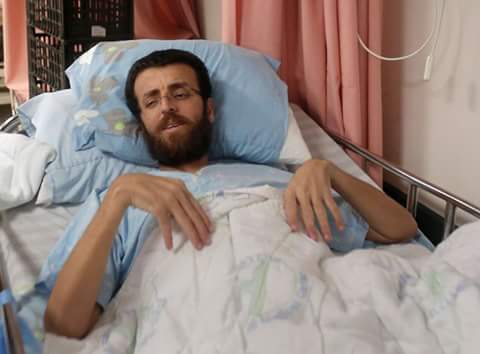Tag: Hunger strike
-
Mohammed al-Qiq on the verge of death: sign Avaaz petition to demand his freedom NOW!
12th February 2016 |International Solidarity Movement, Ramallah Team | occupied Palestine 33-year-old journalist, Mohammed al-Qiq, is on his 80th day of a hunger strike in protest against his imprisonment without charges or trial. Al-Qiq’s health has deteriorated to the point of facing imminent death. We are making a call to the international community to…
-
Ambulance to attempt to transfer hunger striker to hospital in Ramallah
9th February 2016 | Hebron, occupied Palestine On Wednesday February 10th, 18:00 supporters will arrive at the hospital in Afula, accompanied by an ambulance and doctors, to transfer Mohammed Al-Qeeq for medical treatment in the Ramallah hospital. Journalist Mohammed Al-Qeeq is on the 77th day of hunger strike and fighting for his life. He has…
-
Last tribute for a martyred in Bethlehem : “Motaz was happy when he was facing to the sea, it gave him a sense of freedom, lightless that he hadn’t before.”
3rd of December 2015 | International Solidarity Movement, al-Khalil team | Hebron, occupied Palestine On Wednesday 2nd December, in Dheisheh refugee camp, Bethlehem, a mass tribute for 28-year-old Motaz Ibrahim Zawara, took place. Motaz was killed by Israeli forces the previous day when he was shot with live ammunition in his chest during a demonstration at…



